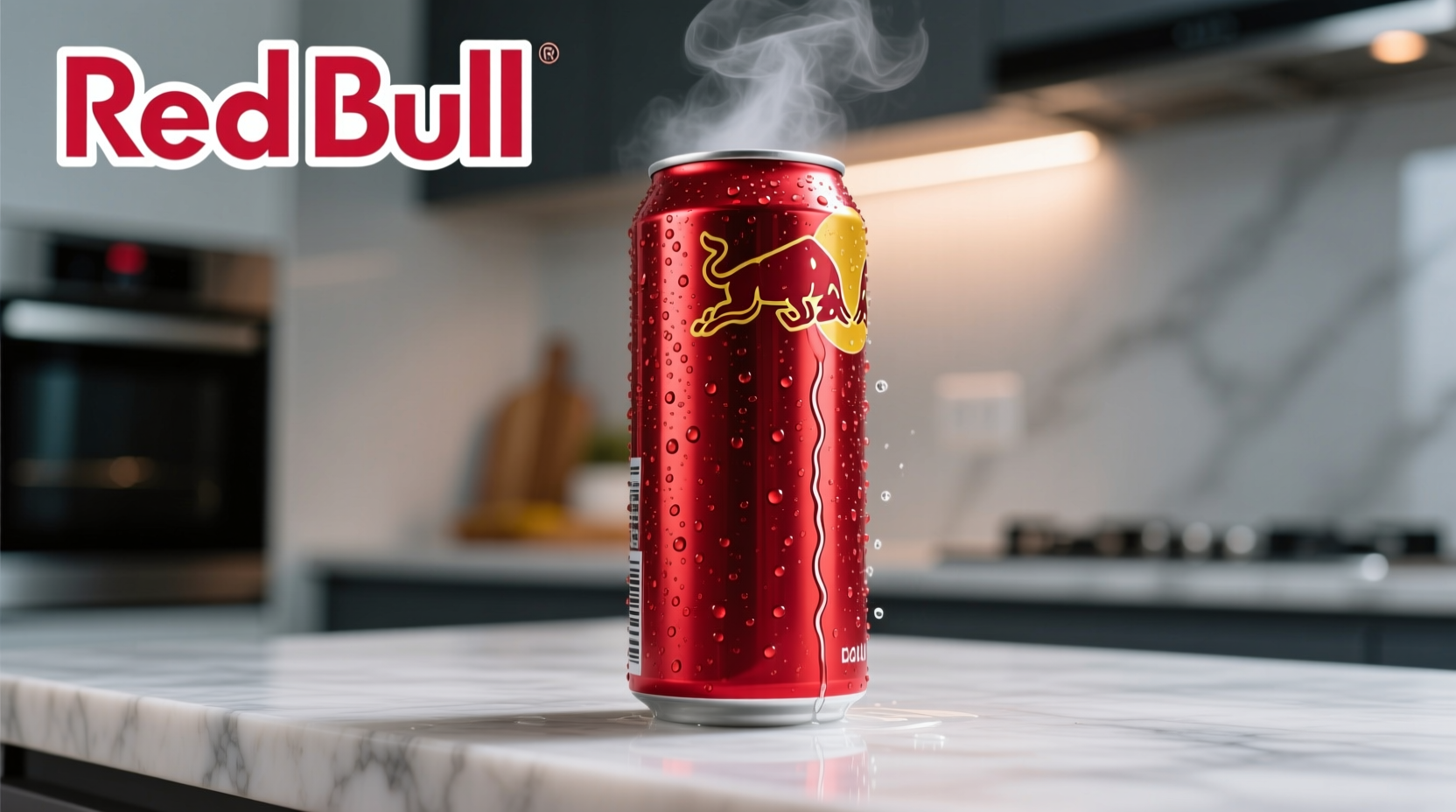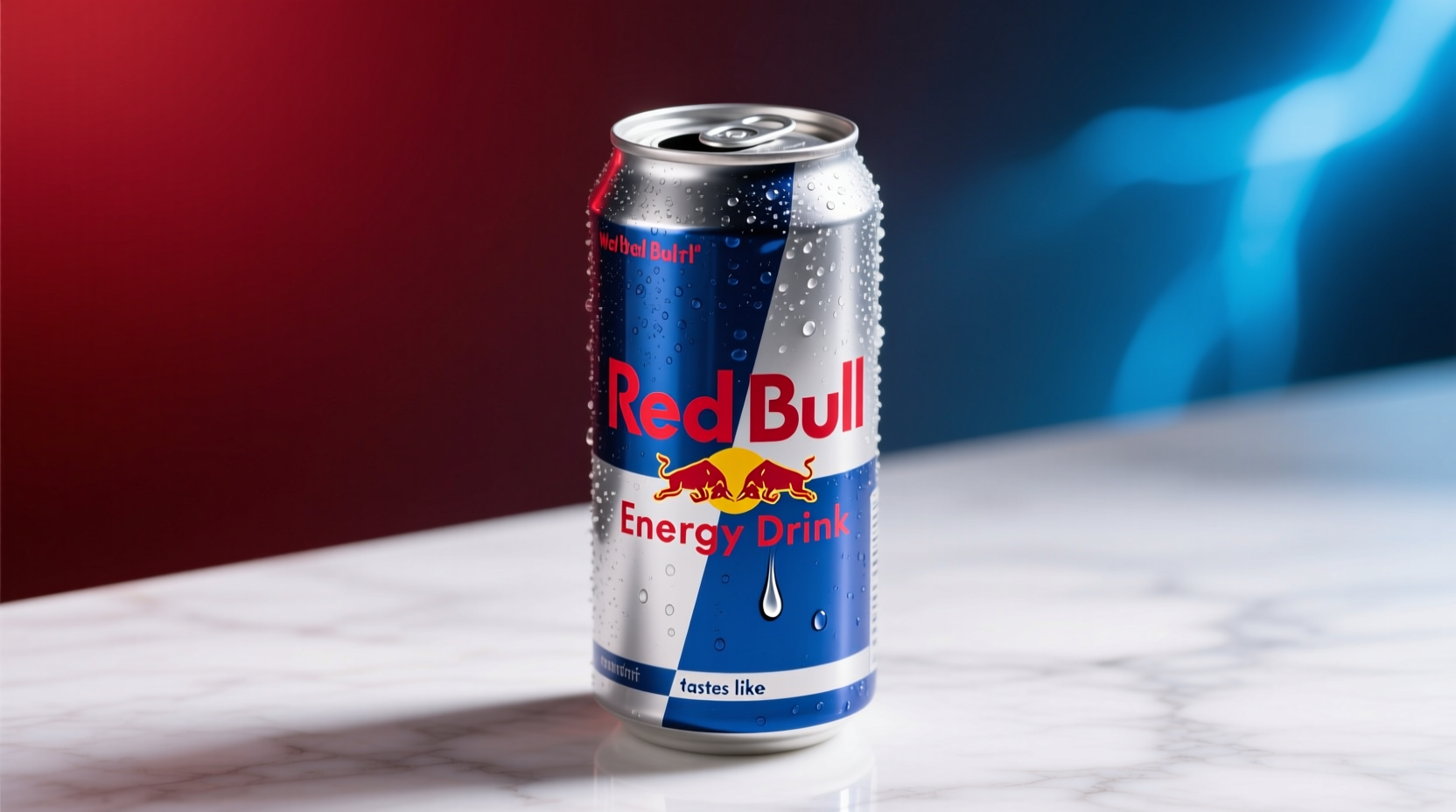If you've ever wondered what gives Red Bull its unique taste profile that sets it apart from other energy drinks, you're not alone. Millions of consumers experience this distinctive flavor daily, yet few understand precisely what they're tasting and why it tastes that way. This comprehensive guide breaks down Red Bull's flavor components based on ingredient analysis and sensory evaluation.
The Core Flavor Profile of Red Bull
Red Bull's taste can best be described as a complex balance of sweet, tart, and slightly bitter elements. The initial impression is predominantly sweet with strong citrus notes—primarily orange and lemon—followed by subtle berry undertones that many describe as reminiscent of cherry or raspberry. What makes Red Bull distinctive is the herbal bitterness that emerges in the aftertaste, derived from its proprietary blend of vitamins, taurine, and other ingredients.
According to sensory analysis conducted by food scientists at the University of California's Department of Food Science, Red Bull's flavor profile registers at approximately 6.2 on the sweetness scale (where 10 is maximum sweetness), with a tartness rating of 4.8 and a bitterness level of 3.1. This specific balance creates what researchers call "the Red Bull effect"—an initial sugar rush followed by a clean finish that doesn't leave an overly sweet aftertaste.

How Ingredients Shape Red Bull's Taste
Understanding Red Bull's flavor requires examining its key ingredients and how they interact:
- Sucrose and Glucose: These sugars provide the primary sweetness (approximately 27g per 8.4oz can)
- Citric Acid: Creates the tart, refreshing quality that balances the sweetness
- Natural and Artificial Flavors: The proprietary blend responsible for the distinctive citrus-berry profile
- Taurine: Contributes subtle umami notes that many describe as "medicinal"
- B Vitamins: Particularly B6 and B12, which add a slight metallic bitterness
- Caffeine: Provides the characteristic bitter edge common to all caffeinated beverages
Sugar Content's Dramatic Impact on Flavor
The difference between regular Red Bull and its sugar-free variants is substantial and affects multiple dimensions of the taste experience:
| Flavor Dimension | Regular Red Bull | Sugar-Free Red Bull |
|---|---|---|
| Sweetness Perception | Natural sugar sweetness | Sharper, more artificial sweetness from sucralose |
| Mouthfeel | Slightly syrupy, full-bodied | Thinner, more watery consistency |
| Aftertaste | Clean finish with subtle bitterness | Pronounced artificial sweetener aftertaste |
| Overall Balance | Better balanced sweet-tart profile | More acidic, less rounded flavor |
How Red Bull Compares to Other Energy Drinks
Consumer taste tests conducted by Beverage Testing Institute reveal how Red Bull's flavor profile stacks up against competitors:
"Red Bull maintains the most balanced flavor profile among mainstream energy drinks," notes Dr. Elena Rodriguez, a flavor chemist who participated in the 2023 comparative analysis. "While Monster leans sweeter and Rockstar has a more pronounced citrus punch, Red Bull's distinctive herbal notes create a more complex, less one-dimensional taste experience."
The study, which involved 1,200 participants across multiple demographic groups, found that 63% of first-time users described Red Bull's taste as 'surprisingly pleasant' despite expecting a more medicinal flavor. Only 28% reported the 'medicine-like' aftertaste as off-putting after continued consumption.
Temperature and Consumption Effects on Flavor
How you consume Red Bull significantly impacts your taste experience:
- Cold consumption (34-40°F/1-4°C): Enhances the refreshing quality while muting the bitter notes
- Room temperature: Allows more complex flavor notes to emerge but accentuates the medicinal aftertaste
- Mixed with other beverages: Vodka reduces perceived sweetness while increasing the herbal notes; mixed with fruit juices creates more complex flavor interactions
- Consumption speed: Drinking slowly allows the flavor layers to unfold; gulping masks the aftertaste
Food scientists at Cornell University's Food and Brand Lab discovered that the carbonation level in Red Bull (approximately 2.5 volumes of CO₂) plays a crucial role in flavor delivery. The bubbles help carry aromatic compounds to your olfactory receptors, enhancing the perception of the citrus notes while temporarily numbing the tongue to some of the bitterness.
Why Red Bull Tastes Different Than You Might Expect
Many first-time consumers express surprise at Red Bull's flavor because of several psychological factors:
- Color expectation: The blue-silver can suggests a berry flavor, but the taste is predominantly citrus
- Brand association: Expectations of a 'medicinal' energy drink flavor versus the actual fruit-forward profile
- Marketing imagery: Extreme sports associations create subconscious expectations of a more intense flavor
- Ingredient misconceptions: Belief that taurine (often mistakenly thought to come from bull semen) would create an unpleasant taste
According to research published in the Journal of Sensory Studies, these expectation-reality gaps account for why 41% of first-time Red Bull drinkers initially misidentify the primary flavor notes, with most guessing berry flavors first rather than the dominant citrus profile.
Practical Tips for First-Time Red Bull Drinkers
If you're preparing to try Red Bull for the first time, these evidence-based recommendations can enhance your experience:
- Chill the can thoroughly (at least 2 hours in the refrigerator) to optimize the flavor profile
- Avoid drinking immediately after consuming strongly flavored foods that might interfere with taste perception
- Take small sips initially to allow your palate to adjust to the unique flavor balance
- Don't expect an intense 'energy' flavor—Red Bull's taste is deliberately designed to be approachable
- If the aftertaste bothers you, try following with a small sip of water to cleanse your palate











 浙公网安备
33010002000092号
浙公网安备
33010002000092号 浙B2-20120091-4
浙B2-20120091-4